 Petzlover
Petzlover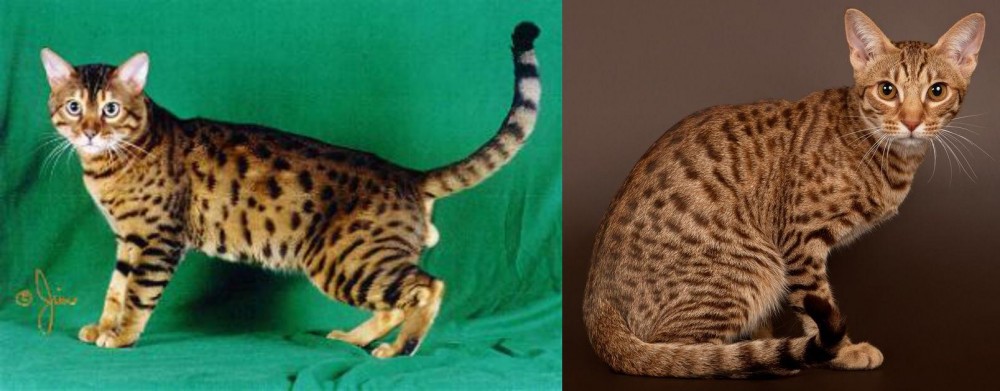 Both Bristol and Ocicat are originated from United States. Both Bristol and Ocicat are having almost same weight. Bristol may live 3 years more than Ocicat. Both Bristol and Ocicat has same litter size. Both Bristol and Ocicat requires Low Maintenance.
Both Bristol and Ocicat are originated from United States. Both Bristol and Ocicat are having almost same weight. Bristol may live 3 years more than Ocicat. Both Bristol and Ocicat has same litter size. Both Bristol and Ocicat requires Low Maintenance.
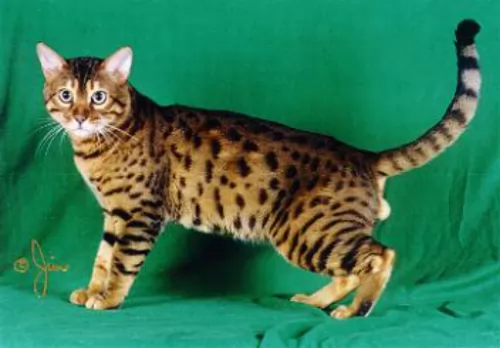 The Bristol cat hails from Texas and was developed during the 1980s, using a south American wild cat and domestic cats.
The Bristol cat hails from Texas and was developed during the 1980s, using a south American wild cat and domestic cats.
The Bristol cat isn’t well-known and in fact, its origins are shrouded in mystery.
The cat was recognized and admitted into the TICA (The International Cat Association. It is looked upon as a hybrid breed or a designer cat.
Nobody seems to know when the first Bristol cat was even bred. Because of its exotic nature, it is believed to be a cross between the American Shorthair and the margay or similar breed.
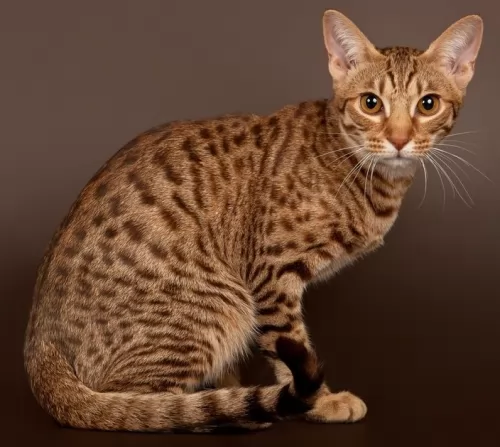 Virginia Daly was the first breeder of Ocicats, hailing from Michigan. She wanted to breed an Abyssinian-pointed Siamese in 1964 and the first kittens looked to be Abyssinian.
Virginia Daly was the first breeder of Ocicats, hailing from Michigan. She wanted to breed an Abyssinian-pointed Siamese in 1964 and the first kittens looked to be Abyssinian.
With the next litter, the Abyssinian-pointed Siamese and a spotted kitten, nicknamed an Ocicat. Further breedings produced more spotted kittens and became the basis of the Ocicat.
A breeding program was started for Siamese to Abyssinian, and the kittens bred to Siamese. Later the American Shorthair was introduced to the Ocicat and this brought in bigger boning as well as adding silver to the 6 colors of the Ocicat.
It was during the 1980s that the cat was accepted for registration in The Cat Fanciers' Association.
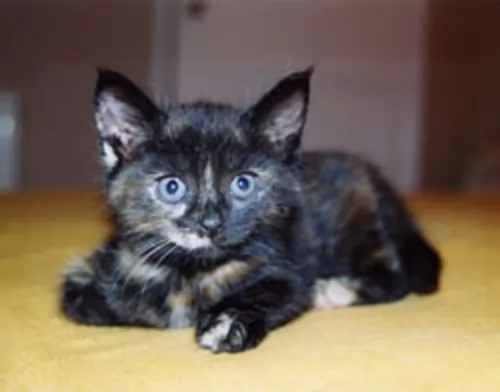 Bristol cats are medium-sized and muscular, powerful cats. They are much like Bengal cats. They have a smokey charcoal appearance while others have quite a bit of white on them.
Bristol cats are medium-sized and muscular, powerful cats. They are much like Bengal cats. They have a smokey charcoal appearance while others have quite a bit of white on them.
They also have rosettes and small rounded ears. The origins of the Bristol breed are uncertain but it seems a multi-colored cat was adopted by a United States Army captain in Australia.
The cat was so adored it was brought back when they returned to the United States. The cat was already pregnant and she gave birth to 2 kittens. The coats are shiny and short-haired with spots and lines of fawn, grey and brown mostly with the eyes being green.
The Bristol cat has a very pleasing disposition – being amicable, playful, and loving. They’re intelligent cats too but they need to spend time in solitude as well.
They definitely don’t respond and bond to everyone in the human family but tend to respond to only one person.
These Bristol cats are cunning and self-confident and because of their wild side, they will need a large area to roam. This is definitely not a cat for city life.
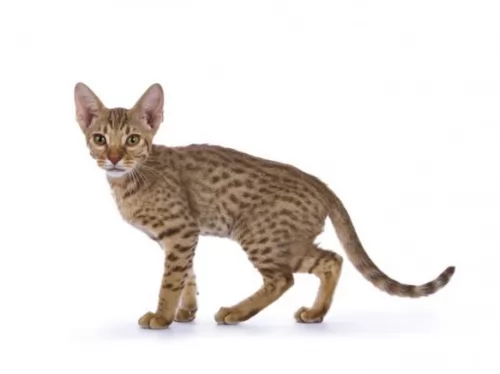 Ocicats, with their wedge-shaped heads, are strong, large cats with muscular legs that have striped markings. The cat can weight between 4 and 7kg. The ears are large and pointed.
Ocicats, with their wedge-shaped heads, are strong, large cats with muscular legs that have striped markings. The cat can weight between 4 and 7kg. The ears are large and pointed.
The cat has almond-shaped eyes. The fur has dark spots and there are many color variants that are approved by the major cat registries. The standard colors for the cat are chocolate, cinnamon and tawny.
These large cats have got personality traits from both cats – the Siamese and the Abyssinian. They are friendly, playful, and sociable cats, making excellent family pets, getting on well with children and other pets. Those who have owned them say owning such a cat is similar to owning a dog as they can be taught basic commands and tricks and even walk on a leash.
They are even known to swim with you. They’re cats that crave the attention of their human owners, but bond specifically with one person. It won’t do at all well in a household where it is left alone for long periods of time.
It's an intelligent cat and will most certainly need toys and a lifestyle that is stimulating.
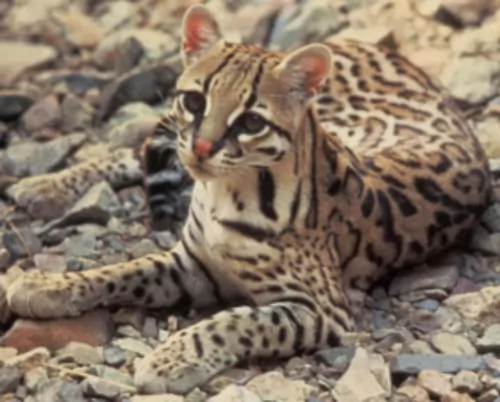 The Bristol cat is beautiful all right, but once again humans should just leave wild cats alone in the bush.
The Bristol cat is beautiful all right, but once again humans should just leave wild cats alone in the bush.
Mixing them with domestic cats doesn’t work in the long run, and many of these cats land up in shelters because of unruly behavior. The Bristol cat is part wild and it doesn’t seem to have a future although there isn’ enough information online to really know what its future is.
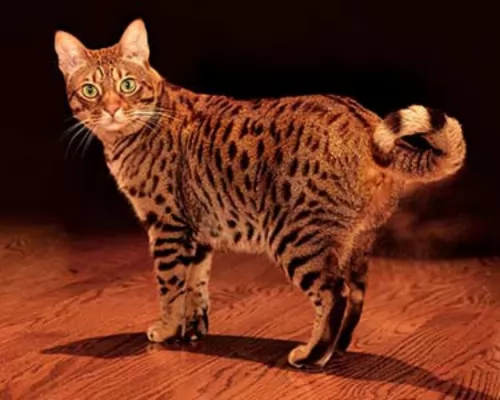 The Ocicat is a friendly, non-aggressive cat that is devoted to his human family. It’s a cat that thrives on being around people and won’t relish being left alone for long periods of time.
The Ocicat is a friendly, non-aggressive cat that is devoted to his human family. It’s a cat that thrives on being around people and won’t relish being left alone for long periods of time.
The largish cat is intelligent and easily trainable. He loves toys and it will be good to buy him some toys that require him thinking a little bit.
Highly energetic, he’ll love nothing more than for you to become involved in his games. Give him the attention he craves and he’ll become your best friend.
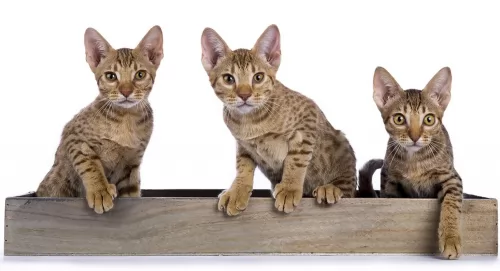 Diet is a crucial part of being a healthy cat, There are many excellent commercially manufactured cat foods on the market and your cat might prefer the wet- or dry type of cat food.
Diet is a crucial part of being a healthy cat, There are many excellent commercially manufactured cat foods on the market and your cat might prefer the wet- or dry type of cat food.
The idea is to choose the highest quality cat food that is packed with meat and protein as your cat is a carnivore. One good way to choose a good cat food is to read the ingredients and make sure that the first ingredients are meat.
He wants chicken, tuna, liver and pheasant in his diet. Make sure that the food also contains taurine as this is an essential amino acid that every cat must have.
If in any doubt, speak to your vet as cats require certain vitamins and minerals to remain healthy. Always ensure a fresh supply of cool drinking water.
Your cat requires being vaccinated and dewormed.
Get to know a good vet in your area so that if your cat is sick, you don't have to waste precious time searching for a vet.
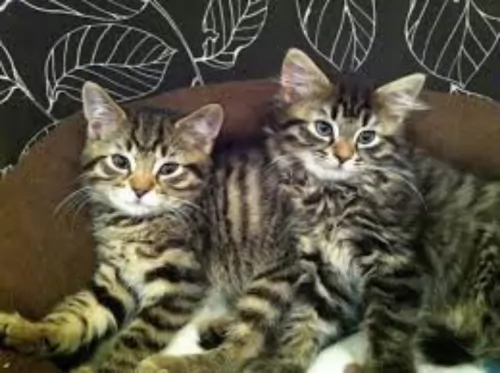 The diet of a cat such as the Bristol will include small rodents, however once domesticated, these cats will need a diet high in protein. The cat is a carnivore and to be healthy it will require high-quality premium commercial cat food that is appropriate for the age of your cat and his health status.
The diet of a cat such as the Bristol will include small rodents, however once domesticated, these cats will need a diet high in protein. The cat is a carnivore and to be healthy it will require high-quality premium commercial cat food that is appropriate for the age of your cat and his health status.
The best cat food has taurine in it, an essential protein that cats can only obtain through quality food. Your adult Bristol cat may prefer eating several smaller meals and this is actually a good idea as smaller frequent meals help towards greater urinary tract health.
If you want a healthy cat, you have to be diligent with providing such a cat with good food that is high in protein. If you aren’t sure, your veterinarian will be able to advise you on what to feed your new cat or kitten.
Factors such as age, size, activity levels, and health make a difference to what you feed your cat, how much and how frequently.
Get into a habit of reading and understanding the labels on the cat food packaging. Certainly, every cat requires taurine, an essential amino acid. You will also need to ensure fresh, cool water day and night.
Always take your pet to the veterinarian if he is lethargic ad disinterested in his food.
Most cats are clean, but you should brush or comb your Bristol cat regularly as the brushing helps keep your cat's coat shiny and also reduces the amount of hair during shedding.
Provide your Bristol cat with a dry, warm sleeping area and keep the bedding clean.
Your Bristol cat needs to wear a safety collar and an ID tag. These ID tags or an implanted microchip can help ensure that your Bristol cat is returned if he becomes lost.
Cats scratch, and cutting your cat’s nails will keep the nails blunt. Nonetheless, to prevent your furniture from being scratched, provide your cat with a strong scratching post covered with a rough material such as sisal or tree bark.
Bristol cats are independent and they don’t require any kind of special care. Certainly, they require large areas for their active lifestyle as well as a shallow pool for swimming.
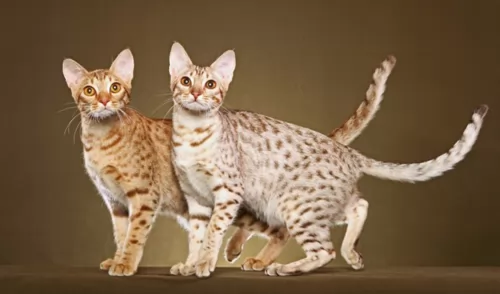 Provide your Ocicat with companionship as these are cats that can’t be left for hours on their own.
Provide your Ocicat with companionship as these are cats that can’t be left for hours on their own.
Provide your Ocicat with a litterbox that is kept clean. Your ocicat’s dropping must be regularly raked up out of the litter box sand and removed. A cat won’t use a dirty litterbox.
Treat your Ocicat for parasites. In fact, treating parasites isn’t a once-off treatment but ongoing. You can consult with your veterinarian for advice on the best and safest way to treat your pet for worms, ticks, fleas, and mites.
Brush your Ocicat’s fur once a week. They have short fur so they are fairly low maintenance. You can use a rubber hand brush and you can even wipe the fur down with a damp cloth to remove dust. He will have to have his claws trimmed.
Nobody should buy a pet and then do as little as possible for it. Your Ocicat’s going to need daily exercise as well as mental stimulation and he will require this through interaction with his human family. Buy him stimulating toys to keep him busy, play games with him and buy a cat leash so you can take him on walks outdoors for a bit of sunlight.